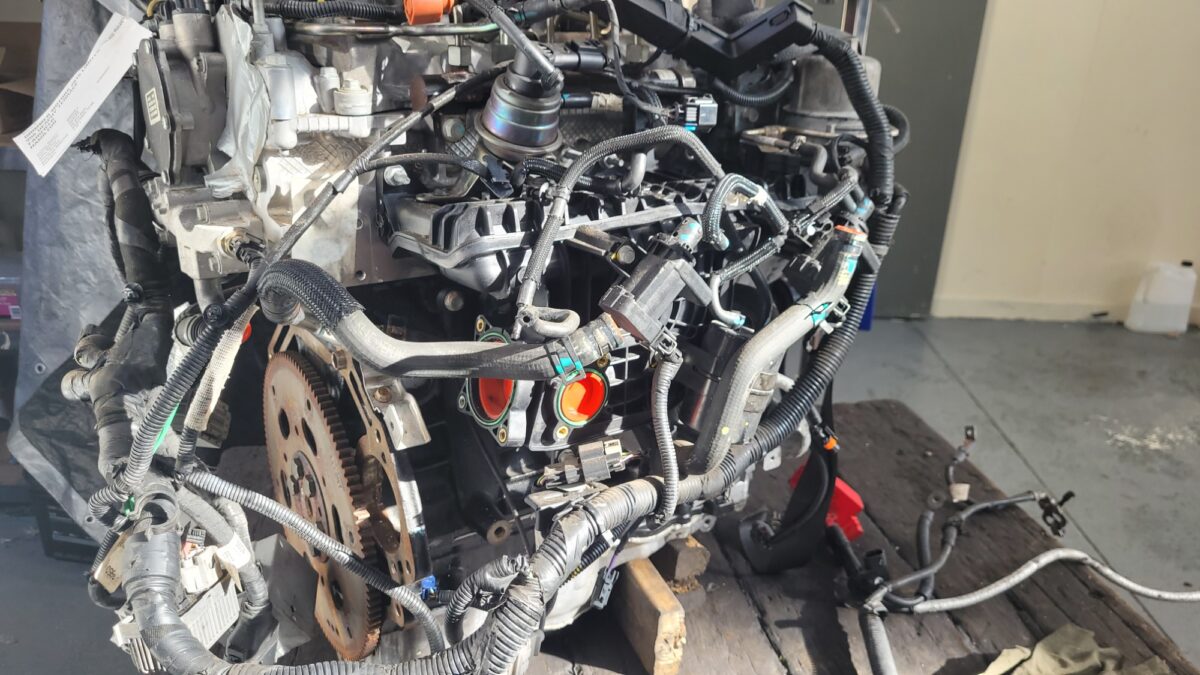1. Worn or Stuffed Motor Mounts
Let’s start with the basics. The motor mounts are the lumps of rubber (and sometimes metal bits) that hold your engine steady while you’re rattling over speed bumps on Rototuna Road or cruising around Cambridge. These little guys take a real hammering — especially with all the potholes popping up after those wet Hamilton winters we keep getting. If your engine feels like it’s literally shaking the whole car, especially when you’re sitting at the lights on Victoria Street, chances are you’ve got a dodgy mount or two.
One of our techs had a Mazda Atenza in recently from a lady out in Morrinsville — she thought her dash was about to shake itself loose. We swapped out her knackered mounts and she was back on the road, vibration-free. Make sure to pay attention to the signs and replace them if needed. Here’s a good read if you want more on broken engine mounts.
2. Wheels Out of Whack or Tyres Out of Balance
You wouldn’t believe how often we see vibes coming from dodgy wheels or crooked tyres, especially after someone’s hit a curb outside The Base or powered through a sneaky Hamilton pothole. When your tyres or wheels get out of balance, you’ll feel it through the steering wheel — usually most obvious zipping down Kahikatea Drive or on the expressway past Te Rapa. It can sneak up on you, but keeping your tyres rotated, balanced, and wheels aligned means a smoother, safer drive.
Saw it just the other day on a ’04 Volvo XC70, owner from Te Awamutu — sorts it out with a simple balance & alignment and suddenly it feels like new. Check out these tyre rotation tips to keep yours sorted longer.
3. Crook Spark Plugs
If the spark plugs are on their way out, you’ll feel vibrations through your whole car (and usually a drop-off in power, especially mid-acceleration at the lights near Five Cross Roads). It’s super common across all sorts — Toyota RAV4s, Honda Streams, even those blend-in BMWs running around from Raglan to Huntly. Bad plugs make your engine run rough or misfire — pretty obvious stuff.
A regular check is a good plan, especially before a big roadie up to Auckland or when you’re due for a car service Hamilton. Have a squiz at some of the signs you need to change your plugs and if you’re not keen to get your hands dirty, our spark plug repair guide will help.
4. Blocked or Dirty Fuel Injectors
Seen plenty of European models (Peugeot, Renault, Audi, even the odd SsangYong Actyon ute) roll in from places like Tamahere misfiring and shaking at idle. A lot of the time, it’s stuffed or gummed-up fuel injectors causing all sorts of weird vibrations.
When your injectors aren’t spraying fuel like they should, you get rough running — especially with the stop-start Hamilton traffic on roads like Peachgrove Road. Keeping them clean helps heaps. Have a crack at cleaning them or get us to sort it during your regular checkup. This fuel injector guide has all the info you need.
5. Transmission or Gearbox Gremlins
Last but not least, gearbox hassles are a big cause of odd shakes or odd vibes — especially when shifting out of intersections on Ulster Street or hauling up hills around Flagstaff. Doesn’t matter if you’re in a Suzuki Swift, a Nissan Leaf (yep, hybrid repair is a thing now), or a big old Skoda Octavia — neglecting your transmission just spells trouble down the line.
Fluid low? Gear changes feeling notchy? Weird thunks on acceleration? Don’t put it off. Sorting things early keeps you away from the big repair bills. For more on transmission care, have a look at our automatic transmission service tips.
Conclusion
Car feeling shaky? Don’t just tough it out — you’ll only make it worse and more pricey. Most engine vibrations come down to a handful of classic Kiwi car problems: dodgy mounts, wobbly tyres, tired spark plugs, dirty fuel injectors, or transmission niggles. Catch it early and you’ll avoid hassle, failed WOFs, or even a breakdown on Ruakura Road at morning rush hour.
If your car’s shuddering, rattling, or just “doesn’t feel right,” swing by Grimmer Motors. We’ll give it a once-over, yarn through what’s really causing the shakes, and get you sorted. Sweet as.

